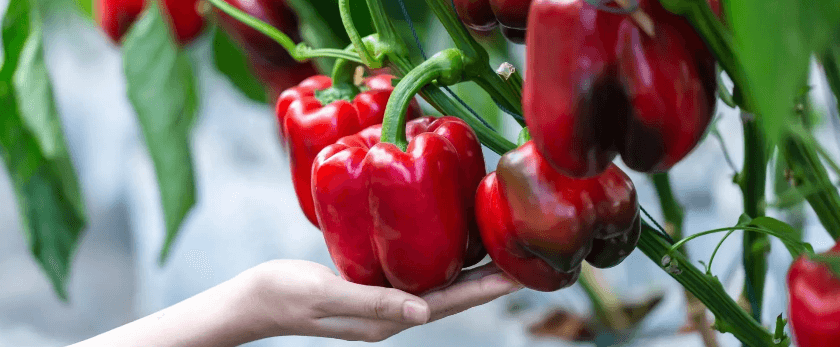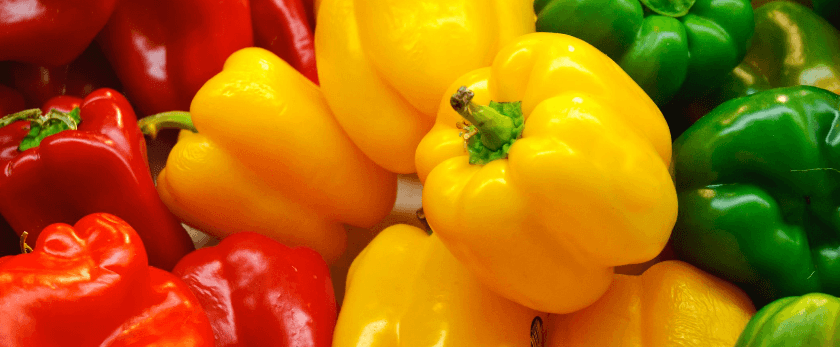Peppers are a versatile and delicious addition to any garden. Not only do they add flavor and spice to our meals, but they also provide numerous health benefits. However, growing peppers can be a bit tricky, especially for those new to gardening. In this article, we will discuss the best practices for growing peppers in a sustainable and eco-friendly manner. From caring for your plants to common problems and the best time to grow, we've got you covered. So let's get started!
How to Care for Peppers
Peppers are a warm-weather crop that requires plenty of sunlight, water, and nutrients to thrive. Here are some tips for caring for your pepper plants:
Watering
Peppers need consistent moisture to grow, but they don't like to be overwatered. The key is to keep the soil evenly moist, but not soggy. Water your plants deeply once or twice a week, depending on the weather and soil conditions. Avoid getting the leaves wet, as this can lead to fungal diseases. It's best to water in the morning, so the leaves have time to dry before the cooler evening temperatures.
Light
Peppers need at least 6-8 hours of sunlight per day to produce fruit. If you're growing them in containers, make sure to place them in a sunny spot or use a grow light. If you're growing them in the ground, choose a location that receives full sun. If you live in a hot climate, some afternoon shade can help protect the plants from scorching.

Soil
Peppers prefer well-draining, fertile soil with a pH level between 6.0-6.8. If your soil is too acidic, you can add lime to raise the pH level. If it's too alkaline, you can add sulfur to lower it. It's also a good idea to amend your soil with compost or aged manure before planting. This will provide the plants with the necessary nutrients and improve the soil's structure.
Fertilizer
Peppers are heavy feeders, so they will benefit from regular fertilization. You can use an organic fertilizer, such as compost or fish emulsion, every 2-3 weeks. Alternatively, you can use a slow-release fertilizer at the beginning of the growing season. Just make sure not to over-fertilize, as this can lead to excessive foliage growth and fewer fruits.
Pruning
Pruning pepper plants can help increase air circulation and prevent diseases. It can also help the plants focus their energy on producing fruit rather than growing more foliage. You can remove any damaged or diseased leaves and branches, as well as any suckers that grow between the main stem and branches. However, be careful not to remove too many leaves, as they provide shade for the fruits.
What is the Best Time to Grow Peppers?
The best time to grow peppers depends on your location and climate. In general, peppers are warm-weather plants that prefer temperatures between 70-85°F. They can be started indoors 8-10 weeks before the last frost date and transplanted outside once the soil has warmed up. If you live in a colder climate, you can also grow peppers in a greenhouse or use row covers to protect them from frost.
Common Problems with Peppers
Like any plant, peppers can face some challenges during their growth. Here are some common problems and how to address them:
- Pests: Aphids, flea beetles, and cutworms are some common pests that can attack pepper plants. You can use organic pest control methods, such as neem oil or insecticidal soap, to get rid of them. You can also attract beneficial insects, such as ladybugs and lacewings, to your garden to help control pest populations.
- Diseases: Peppers can be susceptible to fungal diseases, such as powdery mildew and blossom end rot. To prevent these diseases, make sure to water at the base of the plants and avoid getting the leaves wet. You can also use organic fungicides, such as copper spray, to control fungal growth.
- Blossom Drop: If your pepper plants are flowering but not producing fruit, it could be due to blossom drop. This can happen when the temperature is too high or too low, or if the plants are under stress. Make sure to provide consistent moisture and avoid extreme temperatures to prevent blossom drop.
- Poor Fruit Set: If your pepper plants are not producing many fruits, it could be due to poor pollination. You can hand-pollinate the flowers by gently shaking the plants or using a small paintbrush to transfer pollen from one flower to another. You can also attract pollinators, such as bees and butterflies, to your garden by planting flowers and avoiding the use of pesticides.
Sustainable Gardening Practices for Peppers
In addition to caring for your pepper plants, there are some sustainable gardening practices you can incorporate to make your garden more eco-friendly. Here are some ideas:
- Composting: Instead of throwing away your kitchen scraps, you can compost them and use the nutrient-rich soil to fertilize your plants. This reduces waste and eliminates the need for chemical fertilizers.
- Mulching: Mulching around your pepper plants can help retain moisture, suppress weeds, and improve soil health. You can use organic materials, such as straw, leaves, or grass clippings, as mulch.
- Water Conservation: To conserve water, you can use a drip irrigation system or a rain barrel to collect rainwater for your plants. You can also use a layer of mulch to reduce evaporation and water your plants in the morning to prevent water loss due to evaporation.
- Natural Pest Control: Instead of using chemical pesticides, you can use natural methods to control pests in your garden. For example, you can plant companion plants, such as marigolds and basil, to repel pests. You can also use physical barriers, such as row covers, to protect your plants.
- Responsible Disposal: When your pepper plants have finished producing, make sure to dispose of them responsibly. You can compost the plant material or use it as mulch. If you have any plastic pots or trays, make sure to recycle them instead of throwing them away.
Conclusion
Growing peppers can be a rewarding experience, both for your taste buds and the environment. By following these tips and incorporating sustainable gardening practices, you can grow healthy and delicious peppers while reducing your carbon footprint. Remember to care for your plants, address any problems that may arise, and dispose of your plants responsibly. Happy gardening!










